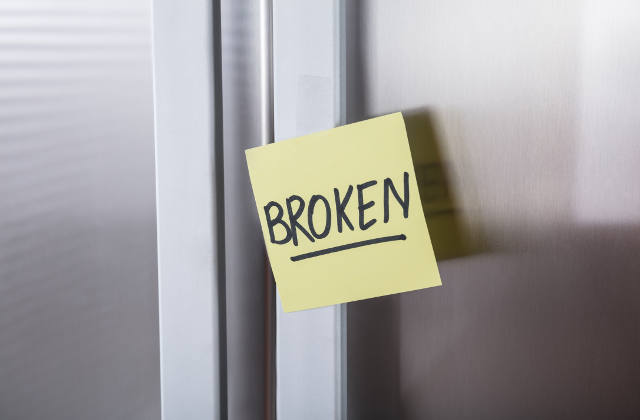Did you know that extremely high temperatures (as well as low temperatures) can ruin your cooling appliances? Fridges, freezers, combined fridge freezers, wine coolers, beer fridges, chest freezers and so on can all be at risk in the summer.
The problem is quite a fundamental one in that these appliances were never designed to operate in temperatures that lie outside the ‘normal’ range. Take a look at the European climate classes for domestic refrigeration units:
N (Normal) Class = +16°C to +32°C ambient room temperature
SN (Sub Normal) Class = +10°C to +32°C ambient room temperature
ST (Sub Tropical) Class = +18°C to +38°C ambient room temperature
T (Tropical) Class = +18°C to +43°C ambient room temperature
Appliances sold in the UK will be either N or SN, which means that an environment above 32˚C is not safe. In fact, any temperatures over 30˚C should be avoided as a location for your fridge or freezer, and this includes conservatories, garages or outbuildings, especially if the high temperatures persist for extended periods of time.
So, what can go wrong?
Operational problems leading to unit failure
When the ambient temperature is too high, the compressor in the refrigeration unit will be running at maximum capacity. Since the compressor is not designed to work for such long periods of time, it will start to overheat and when this gets to critical levels, the machine will trigger a thermal overload cutout – an important safety device that cannot be bypassed – meaning your fridge or freezer will simply stop working.
Even before this happens, you may notice your appliance acting ‘funny’ – not cooling properly, icing up on the rear wall, randomly defrosting and other problems may suddenly occur in the summer heat. Time to get the refrigeration engineer out.
Higher electricity use (and cost!)
If you’re lucky and your fridge or freezer manages to cope with the high temperatures without issues, there is still a massive increase in electricity use to contend with. The compressor on a normal, non-frost-free appliance should run about 50-60% of the time the machine is plugged in (70-80% for frost-free appliances), but during a heatwave, the load will be increased to 100%. This could nearly double your electricity cost, in addition to slowly destroying the machine.
Integrated appliances
The problem can be even more pronounced with integrated refrigeration appliances that rely on sufficient airflow around the unit to keep the ambient temperature cool. If you have had your kitchen professionally designed and installed, there shouldn’t be an issue with this since the installer will have made sure that plenty of air can circulate. However, many under-counter fridges or freezers, or freestanding units squeezed into unsuitable enclosed places such as understairs cupboards, suffer from restricted airflow supply.
The result is that the compressor on the fridge or freezer will start to run hot and for too long, which first ramps up your electricity bill and, ultimately, burns out.
What about repairs and warranty claims?
You may think that your fridge freezer will be covered by the warranty if it breaks down, but improper or unsuitable installation can be a valid reason for the manufacturer to reject a warranty claim. After all, why should the manufacturer have to pay for a problem that isn’t technically their machine’s fault? That said, it is not uncommon to get a first repair, say, a new compressor, done under warranty. However, should the part fail again after a short time, there may be questions asked as to why this is happening.
Following the manufacturer’s instructions regarding the proper location and installation of the appliance will give you the best chance of getting the most out of your fridge or freezer. That way, you minimise the risk of anything going wrong while having the peace of mind that if it does break down, you’re covered.
For more information and professional advice on refrigeration appliances for your kitchen, please call our friendly team on 020 8686 9006.

